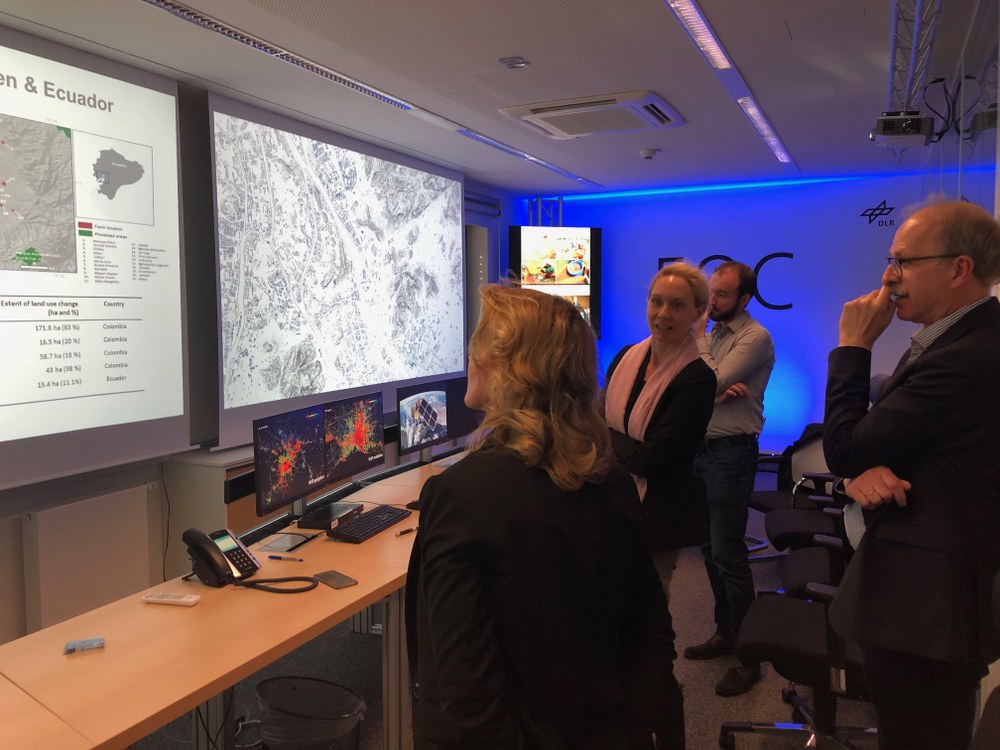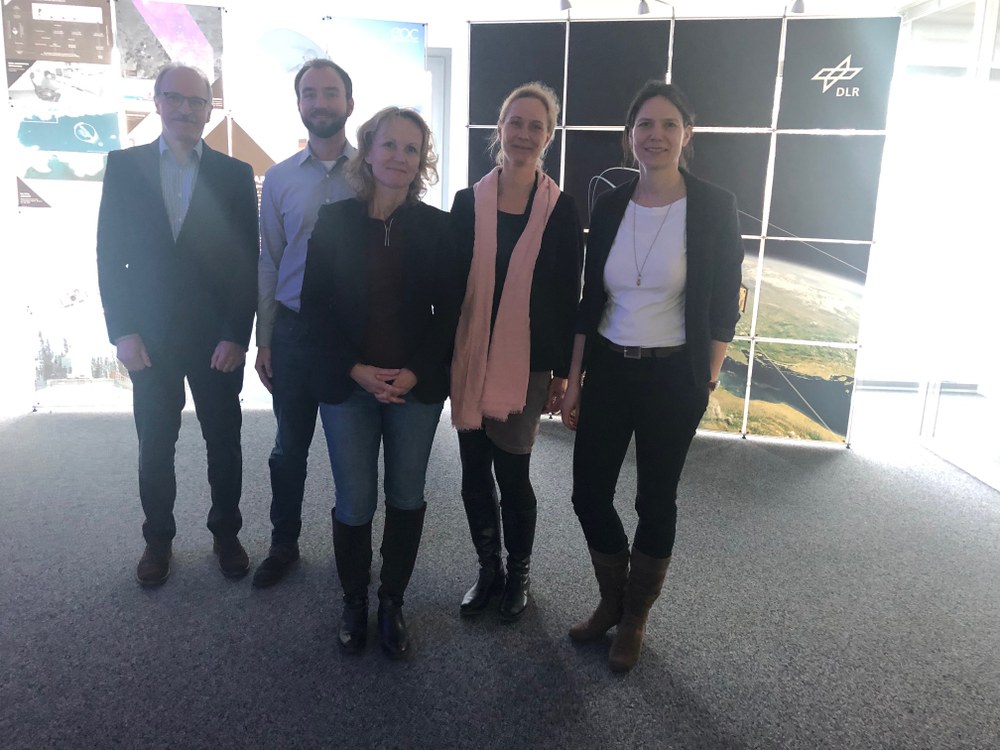Steffi Lemke visits ZKI
The emphasis was on climate research and earth observation during the 8 February 2019 visit of Steffi Lemke, a member of the Bundestag (Bündnis 90/Die Grünen), to the German Aerospace Center (DLR) in Oberpfaffenhofen. After a welcome by Reinhold Busen, the center's administrative head, Ms. Lemke gained a useful impression of space activities at the German Space Operations Center (GSOC). For example, she could find out how German ESA astronaut Alexander Gerst was supported from Oberpfaffenhofen during his stay at the International Space Station (ISS). She also got an idea of how satellite missions are controlled from Oberpfaffenhofen.

As her party's spokesperson in the Bundestag for nature conservation, Ms. Lemke was especially interested in the research activities of the Center for Satellite Based Crisis Information (ZKI) at the Earth Observation Center (EOC). DLR's remote sensing scientists make a significant contribution toward addressing urgent societal issues in the areas of environment and climate, mobility and civil planning, and the prevention and management of natural disasters. They have access to satellite data from a global network of reception stations. EOC also includes the German Remote Sensing Data Center (DFD) and the Remote Sensing Technology Institute (IMF) with their facilities in Oberpfaffenhofen, Neustrelitz and Berlin-Adlershof, as well as the Maritime Safety and Security Lab in Bremen. Earth observation data including satellite and aerial images and other geodata are analysed at ZKI. From this data, DLR scientists produce up-to-date situational information to support the work of emergency response teams during or after natural disasters and other crisis situations. Accordingly, users of ZKI include political decision makers, situation centres, and aid agencies in Germany and abroad.

The visit ended at the Institute of Atmospheric Physics, where the subject of climate research was on the programme. The scientists informed Steffi Lemke about their research on the physics and chemistry of the global atmosphere. Data on the movement and chemical composition of air masses in the atmosphere are collected and evaluated at the institute. With their help it is possible to better understand and predict climate processes.
